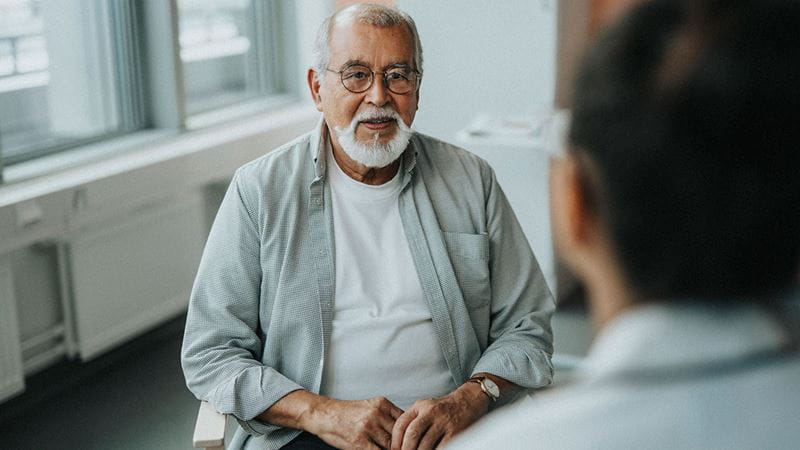Blog article
Colonoscopy for longstanding constipation in people under 50: Is it necessary?

A colonoscopy is a medical procedure in which a flexible camera looks inside the large intestine (colon) and rectum to check for issues like polyps, tumours, or diseases such as inflammatory bowel disease. While it’s an important tool for diagnosing certain conditions, it’s not always needed – especially when less invasive tests are available.
If you’re under 50 and the only symptom you’re experiencing is long-term constipation, a colonoscopy often doesn’t provide useful information. In this article, we’ll explain why, explore alternative tests, and highlight when a colonoscopy is actually helpful.
What is constipation and what causes it?
Constipation means having fewer than three bowel movements per week. It’s common, affecting up to 1 in 5 adults.1 Thankfully, while it can be uncomfortable (and let’s face it – really frustrating), it’s usually temporary and improves with simple lifestyle changes.
Common causes of constipation include:2,3
- Not eating enough fibre
- Not drinking enough water
- Lack of physical activity
- Certain medications
- Changes in routine, such as travel
- Holding in bowel movements
- Periods of inactivity due to illness
- Older age
- Pregnancy
- Overuse of some laxatives
Most cases of constipation improve by:2
- Drinking more water
- Eating more fibre
- Taking fibre supplements
- Exercising regularly
- Using laxatives when necessary
- Adjusting medications if they are the cause
When could constipation be a sign of something more serious?
In most cases, constipation is harmless. However, if it occurs alongside other symptoms, it could be a sign of a more serious condition that needs further investigation.
It’s recommended to see your doctor if you have constipation with any of the following:1,4,5
- Rectal bleeding
- Ongoing stomach pain or bloating
- Unexplained weight loss
- A sudden change in bowel habits lasting at least six weeks
- Diarrhoea
- Being over 50
- Anaemia (low iron levels)
- A history of inflammatory bowel disease
- A lump in the abdomen or rectum
- A positive bowel cancer screening test
- A family history of bowel cancer
In these cases, a colonoscopy may be necessary to rule out serious conditions like bowel cancer.
What does the research say?
Studies show that people with long-term constipation (but no other symptoms) are actually less likely to have polyps than people who have no symptoms at all.7 In other words, if chronic constipation is your only issue, a colonoscopy is unlikely to find anything serious.
Since colonoscopies carry risks – such as bleeding, sedation complications, and, in rare cases, a tear in the colon – having one unnecessarily can do more harm than good.8
If you're unsure whether you need a colonoscopy, talk to your doctor about the best next steps for your situation. Choosing Wisely, an initiative funded by the Australian Government Department of Health and Aged Care, encourages people to ask their doctors whether a test or procedure is truly necessary. Being informed helps you avoid unnecessary interventions and focus on treatments that genuinely improve your health.
If you do need a colonoscopy, HBF is here to help. Log in to myHBF or call 133423 to check your level of cover and find a specialist using our Find a Provider tool.
Sources
1 World J Gastrointest Endosc: Constipation and colonoscopy
2 Better Health Channel: Constipation
3 MSD Mansual: Constipation in Adults
4 Safer Care Victoria: Diagnostic colonoscopy for long-standing constipation without other flags for significant pathology
5 Healthdirect: Constipation
6 Australian Institute of Health and Welfare: Cancer data in Australia
7 Colorectal Dis.: Diagnostic yield of colonoscopy for constipation as the sole indication
8 Australian Commission on Safety and Quality in Health Care: Colonoscopy: what you need to know
This article contains general information only and does not take into account the health, personal situation or needs of any person. In conjunction with your GP or treating health care professional, please consider whether the information is suitable for you and your personal circumstances.


